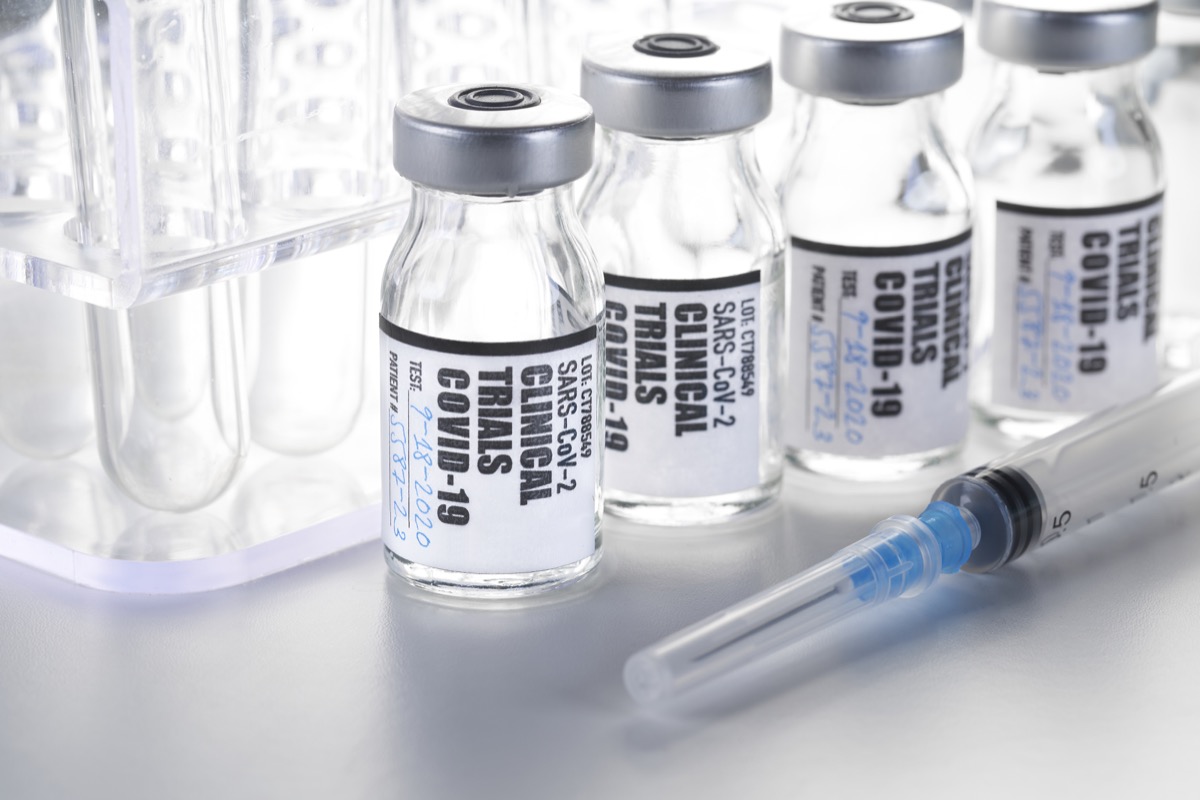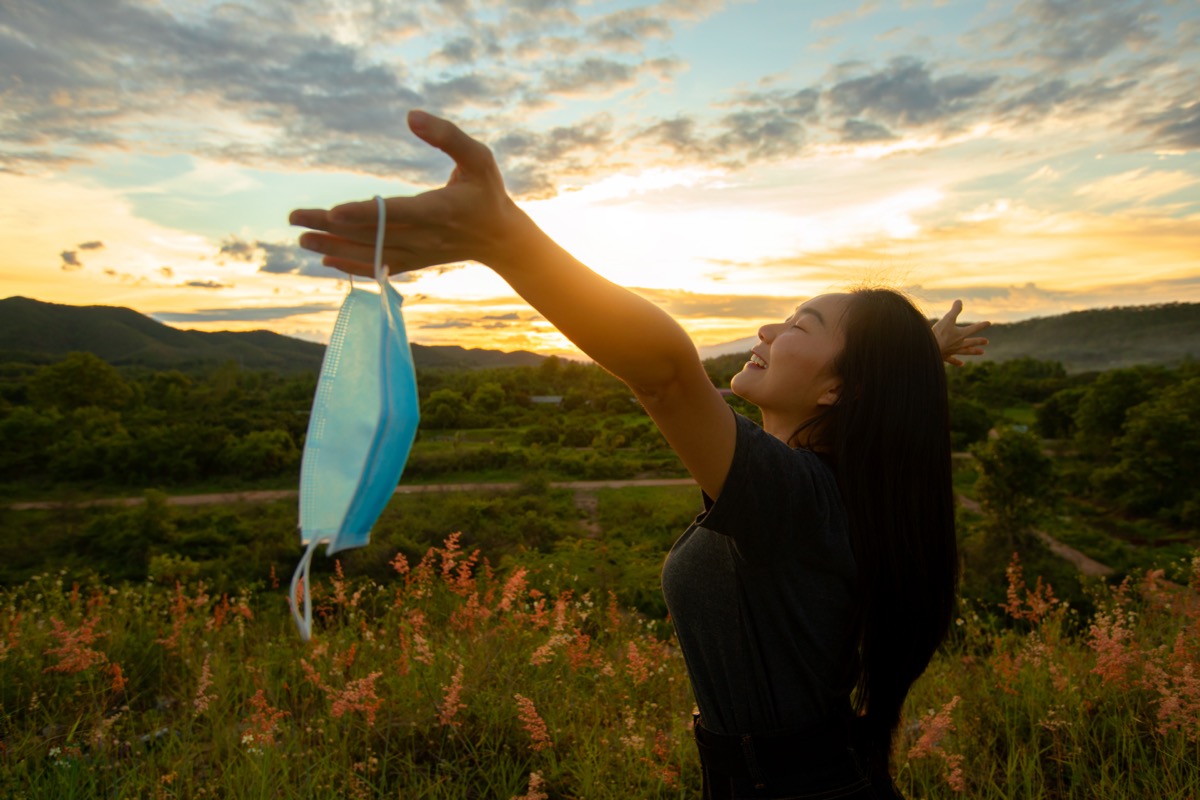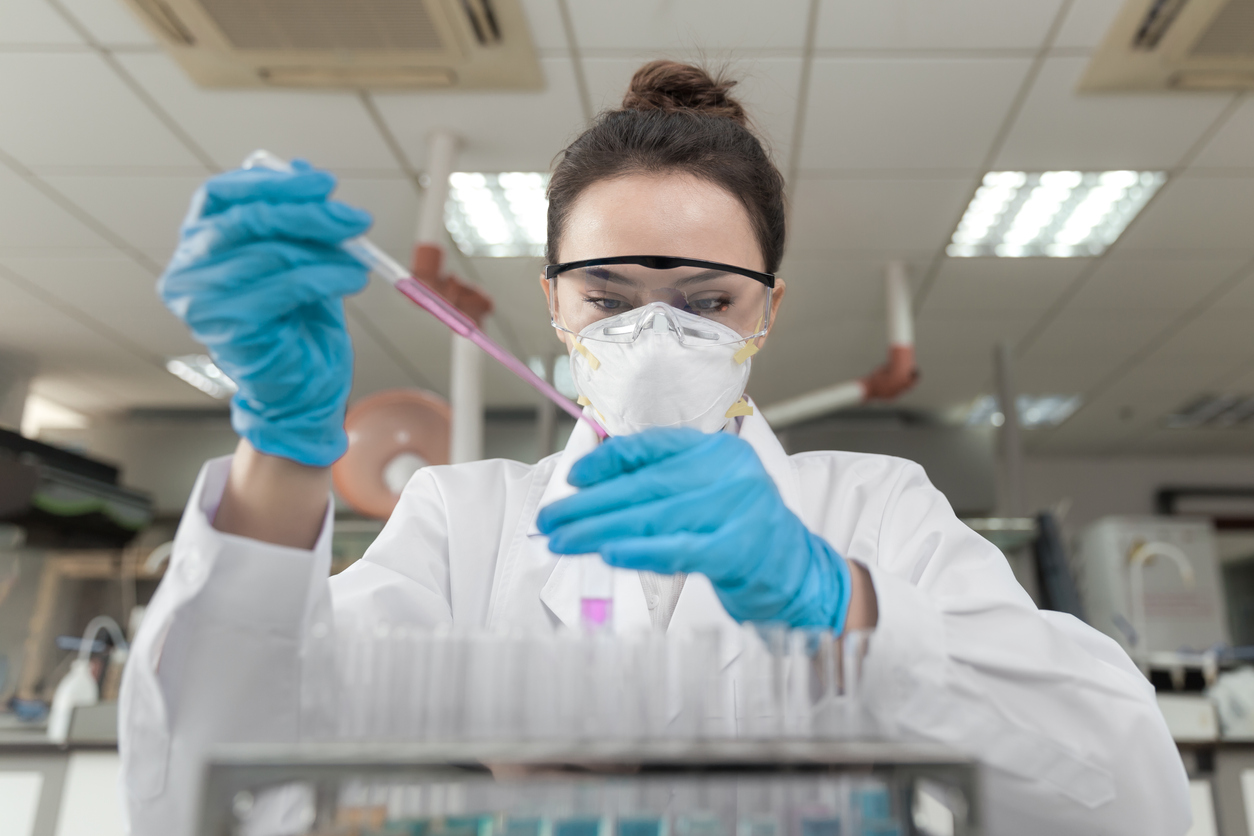While vaccines will eventually help bring coronavirus outbreaks under control, health officials are warning that jumping right back into social activities post-inoculation can be a risky move, The Guardian reports. “We definitely do worry that people feel that, the second they have got that vaccination, they are good to go,” David Halpern, PhD, chair of the U.K. government’s Behavioural Insights Team, told British Parliament. “People feel, as soon as they have got that vaccination: ‘Fantastic, I’m going to be able to go out’.” Read on to find out why this kind of behavior could be putting you and others at risk, and for more on how else you can better protect yourself, check out The CDC Warns Against Using These 6 Face Masks. Both the Moderna and Pfizer vaccines that are currently being administered are estimated to have an efficacy rate of about 95 percent. However, the Centers for Disease Control and Prevention (CDC) points out that not only is this level of protection not achieved until the second dose of the vaccine is administered three to four weeks later, it can still take upwards of 12 to 14 days after the second shot to be fully effective. “Some people think the effect of the vaccine is absolutely immediate,” Stephen Reicher, PhD, from the Scientific Pandemic Insights Group, told The Guardian. “Some people believe that you can’t transmit the disease—and there is a lack of clarity on that from the medical community.” And for more vaccine news, check out The CDC Just Gave a Shocking COVID Vaccine Update. The timeline for returning to “normal life” will depend mostly on how much of the population is vaccinated. Before enough people have received doses, reentering public life without precautions can be risky. “Immunity is not an on/off switch; it’s a dial,” Eric Lofgren, PhD, an infectious disease epidemiologist at Washington State University, told The New York Times. “If you’re below herd immunity, the virus is still happily circulating in the population and there’s always a chance the vaccine isn’t working for you.” And for more on red flags that you could be sick, check out If This Part of Your Body Hurts, You Could Have COVID. Scientists and medical experts are now focusing on educating the public that while vaccinations offer personal protection, their true effectiveness is their part in a group effort to stop transmission of the virus. This means getting a vast majority of the population inoculated—and in the meanwhile, continuing to uphold basic health guidelines such as wearing a mask, diligent hand washing, and practicing social distancing. During a December interview with CNBC, Anthony Fauci, MD, explained that in order to achieve herd immunity, “you would need somewhere between 70, 75, maybe 80 percent of the population vaccinated. [That’s] the number that I’ve been using again, it’s an estimate. You can make an extrapolation from other infections.” And for more on masking up, This Is Why You’ll Need a Mask Even After the Vaccine, Dr. Fauci Says.ae0fcc31ae342fd3a1346ebb1f342fcb Studies are currently underway that focus on what part vaccinated patients play in potentially spreading the novel coronavirus. While it does protect you from getting seriously ill, there is not yet proof it fully prevents infection. And, as clinical trials didn’t test this early on, there is no conclusive data yet that shows whether or not an inoculated person can or can’t infect others. According to Reuters, scientists are currently trying to determine how people physiologically react to the vaccine and how it might affect the way the virus replicates in the body. Until then, continuing to wear a mask, avoiding large gatherings, and practicing social distancing is the best way to keep everyone safe, as well as moving any social activities outdoors whenever possible. And for more on what you don’t need to do to keep yourself COVID-free, check out The One Thing You Can Stop Doing to Avoid COVID, According to Doctors. Keep reading Best Life for more.



